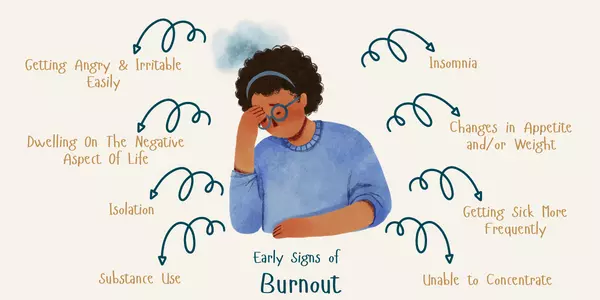5 Ways to Avoid Burnout As A Caregiver
There are two things that new parents need when they have their first child; a parenting manual and a team that follows them around for the rest of their lives. Unfortunately for us, none of those exist, so we’re left to figure it out as we go. What makes this more fun is when life decides to throw us a loop and give us an even bigger challenge when your child is born with a disability. There are times when we master a skill, but there are some things we won’t be able to even grasp, and how to avoid burnout is one of them.
Caregiver burnout occurs when a caregiver experiences a prolonged state of physical, mental, and emotional exhaustion directly related to their responsibility of caring for another individual. It is a real threat to any parent caring for a child with a disability or anyone caring for a family member with a chronic illness, or an older adult who is unable to care for themselves.
Caring for an individual that requires constant attention can be quite demanding. Oftentimes the caregiver is so focused on the needs of the person they are caring for that they neglect their own needs and overall well-being. When this occurs, they fail to detect the early signs of exhaustion, and burnout ensues. If not addressed, burnout can lead to an even bigger problem with the deterioration of the caregiver’s health. To avoid this, here are five tips to help you avoid caregiver burnout and help you live a happy, healthy life while caring for your loved one.
1. Build your community of support
To avoid caregiver burnout, it is crucial that you build a community of support very early on. Having a support system you can rely on eases the burden as there are others who can help lighten your load. Extended family members and friends are a great source of help to caregivers as it allows them to step away from their duties which gives them some downtime to recharge. Your community can even include other caregivers in similar situations. Having someone who knows exactly what you are going through gives you an outlet to mentally and emotionally dump all your fears, frustration, anger and pain you may be harboring. Community support is something we often forget, but it is very important to keep your sanity.
2. Stop trying to do everything yourself
Another reason caregiver burnout occurs is because they try to do everything themselves. Many believe that asking for help makes you weak, but that is so far from the truth. Asking for help simply makes us human, and that is another reason you need to establish a support system. There are many agencies and funding support available to assist caregivers with paying for services they may need. Get in touch with government agencies for access to funding for respite services or devices and equipment that may benefit the person you are caring for.
If you are in Canada, some of these websites are listed below:
For those in the United States, we’ve listed some websites below:
- HHS.gov
- U.S. Dept. of Labor Disability Resources
- Alzheimer’s Association
- American Cancer Society
- The National Institutes of Health (NIH) Caregiver Resources
- Family Caregiver Alliance
3. Know the early signs of burnout
Identifying and responding to the early signs of exhaustion is also very important in avoiding burnout. knowing these signs can help trigger appropriate responses to stress, leading you to live a healthier life as a caregiver.

4. Practice self-care
Taking care of yourself by practicing self-care is one of the best ways to combat caregiver burnout. Self-care can be as simple as going for a walk or watching your favourite TV show, going to the gym or even calling a friend to catch up. Don’t feel like you’re being selfish when you step away for some alone time. Think of it as necessary. When you’re in a positive frame of mind, you’re less likely to experience burnout. Self-care also includes eating healthy meals and seeking help when you are tired or ill.
Resting is another thing that caregivers take for granted. Rest helps your body to repair itself and is vital for better overall health. When you’re well rested, you’re able to think clearly and perform well in your daily life.
We hope the tips we’ve given help you avoid and manage burnout in a healthier way. If you’ve tried to address burnout without any success, it may be time to talk to a professional for further help. Overall, asking for help and monitoring your health is key to avoiding burnout.





